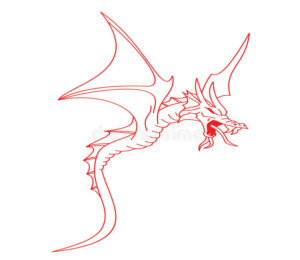
pic courtesy: internet – dreams time
U.S. Deputy Secretary of State Wendy Sherman, visited north China’s port city of Tianjin in Jul 21. China put forward two lists during talks with visiting U.S. deputy secretary of state.
The two lists are:-
- List of U.S. Wrongdoings that Must Stop.
- List of Key Individual Cases that China Has Concerns With.
In the List of U.S. Wrongdoings that Must Stop, China urged the United States to:-
- Unconditionally revoke the visa restrictions over Communist Party of China (CPC) members and their families.
- Revoke sanctions on Chinese leaders, officials and government agencies.
- Remove visa restrictions on Chinese students and stop harassing them.
- China also urged the United States to stop suppressing Chinese enterprises.
- Stop suppressing the Confucius Institutes.
- Revoke the registration of Chinese media outlets as “foreign agents” or “foreign missions”.
List of Key Individual Cases that China Has Concerns With, contains some key individual cases, including some Chinese students’ visa applications being rejected, Chinese citizens receiving unfair treatment in the United States, Chinese diplomatic and consular missions being harassed and rammed into by perpetrators in the United States, growing anti-Asian and anti-China sentiment, and Chinese citizens suffering violent attacks.
China urged the United States to address these cases as soon as possible and earnestly respect and protect the legitimate interests of Chinese citizens and institutions in the United States.
Comments
The Chinese government has practiced issue-linked diplomacy for decades behind closed doors as a negotiating tactic.
China is not only disagreeing with others, but has now started demanding favourable action from others, it seems that a new threshold has been crossed in China’s diplomacy.
China’s engagement ethos has been summed up appropriately as:-
- Competitive when it should be.
- Collaborative when it can be.
- Adversarial when it must be.
This engagement style reflects an interpretation of Xi Jinping thoughts on diplomacy, which calls for “a distinctive Chinese style of diplomacy” that protects the “red line” of China’s self-declared core interests.
Xi Jinping Thoughts on Diplomacy
It has ten core principles. These principles with comments are as follows:-
- Upholding the authority of the CPC Central Committee as the overarching principle and strengthening the Party’s centralized, unified leadership over external work.
# Emphasis is on the supremacy of the Party and the Leadership.
- Advancing major-country diplomacy with Chinese characteristics to fulfil the mission of the great rejuvenation of the Chinese nation.
# Emphasis is on regaining of the lost glory and apex position in the world.
- Building a community with a shared future for mankind with a view to defending world peace and promoting common development.
# Announcement of China’s arrival on the world scene and its role in the world affairs.
- Enhancing strategic confidence based on the foundation of socialism with Chinese characteristics.
# Advocating that the Chinese ideology of governance is the best.
- Promoting Belt and Road cooperation under the principle of extensive consultation, joint contribution and shared benefits.
# Trying to sell BRI, as China has too much riding on it. Although luring others with “shared benefits”, but actually is a Win-Win situation for China.
- Pursuing peaceful development on the basis of mutual respect and win-win cooperation.
# It means achieving of China’s objectives without confrontation.
- Fostering global partnerships by pursuing a broad-based diplomatic agenda.
# Indicating that China should start dominating the multilateral institutions.
- Steering the reform of the global governance system under the principle of fairness and justice.
# Indicating that the global governance system should work as decide by China.
- Upholding national sovereignty, security and development interests with China’s core interests as a red line.
# Active Defence policy with a twist. China will decide what the red line is, when and by whom it has been crossed and China will have the legitimacy of carrying out any retaliatory action as it deems fit.
10. Developing a distinctive Chinese style of diplomacy by both drawing on fine traditions and adapting to the changing times.
# The global governance and diplomacy should be essentially based on the Chinese past traditions and beliefs.
Bottom Line
China is announcing her arrival on the world scene.
Question
Do we want the global governance system with Chinese flavour?
Your thoughts, suggestions and value additions are most welcome
For regular updates, please register here


